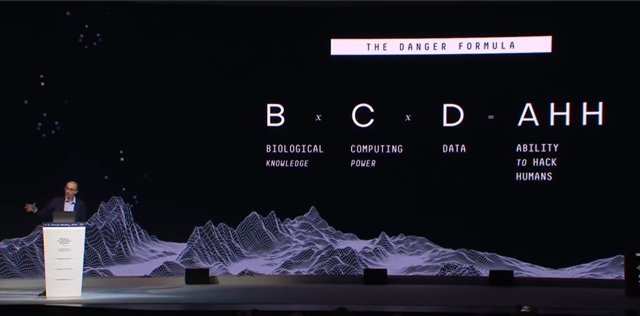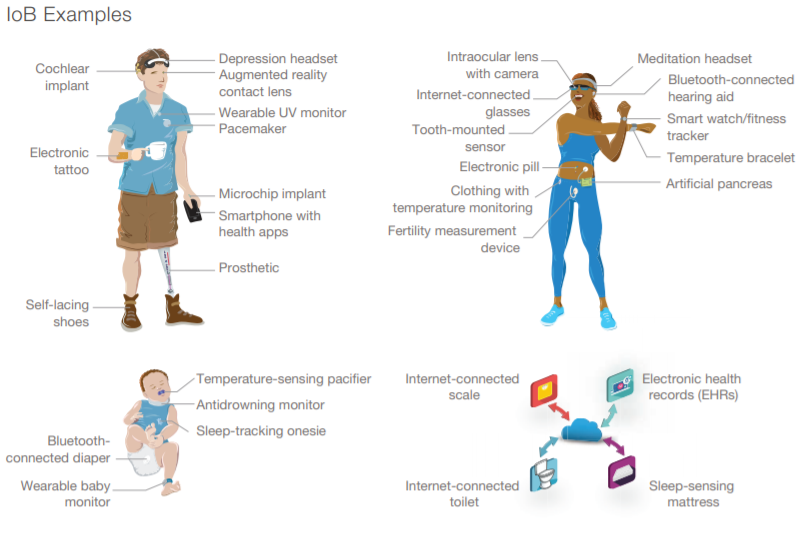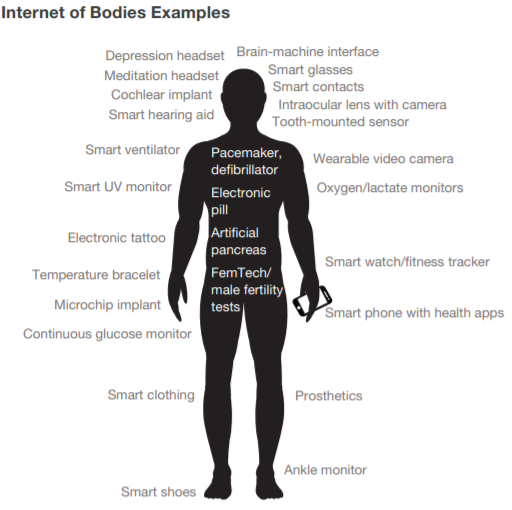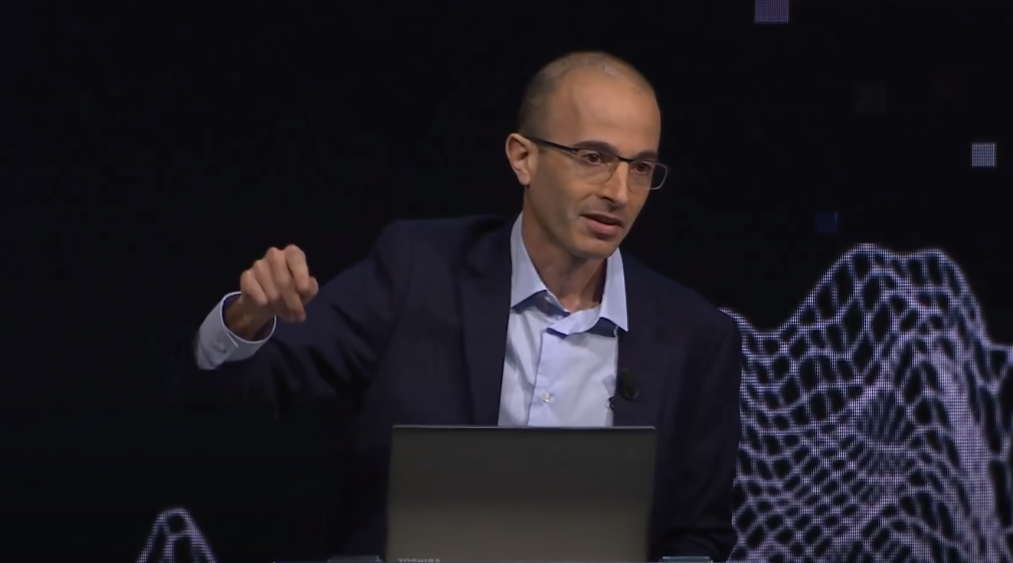DARPA is launching a new research program that analyzes preconscious brain signals to determine if someone believes something is true or not, just as historian Dr. Yuval Noah Harari warned about hacking humans at the WEF annual meeting in 2020.
Under the premise of identifying people at risk of depression and suicide, the Defense Advanced Research Projects Agency (DARPA) has launched the Neural Evidence Aggregation Tool (NEAT) program, which focuses on “aggregating preconscious brain signals to determine what someone believes to be true.”
“NEAT would triangulate responses to aggregate evidence and determine if the person reading the stimuli statements believes they are true, false, or indeterminate” — DARPA NEAT Program, 2022
According to the Pentagon’s research funding arm, “NEAT aims to develop a new cognitive science tool that identifies people at risk of suicide by using preconscious brain signals rather than asking questions and waiting for consciously filtered responses.”
While mental health among soldiers is a serious issue for the Department of Defense, applications coming out of the NEAT program have the very real potential to give governments and corporations the ability to hack human beings at the preconscious level.
Speaking to the unelected globalists at the World Economic Forum (WEF) annual meeting in Davos in 2020, Harari warned that humans were no longer mysterious souls, but rather hackable animals that could be monitored and controlled by public and private entities in horrendous ways.
“Just imagine North Korea in 20 years where everybody has to wear a biometric bracelet, which constantly monitors your blood pressure, your heart rate, your brain activity 24 hours a day.
“You listen to a speech on the radio by the ‘Great Leader,’ and they know what you actually feel — you can clap your hands and smile, but if you’re angry, they know you’ll be in the gulag tomorrow morning” — Yuval Harari, WEF, 2020
“Just imagine North Korea in 20 years where everybody has to wear a biometric bracelet, which constantly monitors your blood pressure, your heart rate, your brain activity 24 hours a day,” said Harari in his “How to Survive the 21st Century” speech.
“You listen to a speech on the radio by the ‘Great Leader,’ and they know what you actually feel — you can clap your hands and smile, but if you’re angry, they know you’ll be in the gulag tomorrow morning.
“And if we allow the emergence of such total surveillance regimes, don’t think that the rich and powerful in places like Davos will be safe,” he added.
“By bringing together recent advances in cognitive science, neuroscience, physiological sensors, data science and machine learning, the NEAT program will develop processes that can measure what a person believes to be true” — DARPA NEAT Program, 2022
Now, DARPA is looking to develop a novel cognitive science tool that enlists machine learning and “physiological sensors” to detect what someone believes to be true.
If this technology ever makes it way into the general population through the Internet of Bodies (IoB) ecosystem of inter-connected devices that can be worn, swallowed, or implanted — then Harari’s dystopian scenario could prove truly prophetic.
The proverbial “they” would know your reaction to what the authorities were saying, know if you believed them or not, and could take action against you.
“If we allow the emergence of such total surveillance regimes, don’t think that the rich and powerful in places like Davos will be safe” — Yuval Harari, WEF, 2020
“By bringing together recent advances in cognitive science, neuroscience, physiological sensors, data science and machine learning,” DARPA says, “the NEAT program will develop processes that can measure what a person believes to be true.”
This will be possible by:
- Presenting carefully crafted stimuli that are designed to evoke specific preconscious mental processes.
- Detecting the resulting preconscious processes using current physiological sensors combined with state-of-the-art signal processing and neural analytics.
- Using advances in machine learning and data science to aggregate the preconscious responses collected across a set of stimuli into a final measurement that quantifies what a person believes to be true for a specific topic.
“We are no longer mysterious souls; we are now hackable animals” — Yuval Harari, WEF, 2020
According to Harari, “To hack human beings you need a lot of biological knowledge, a lot of computing power, and especially a lot of data.
“If you have enough data about me and enough computing power and biological knowledge, you can hack my body, my brain, my life. You can reach a point where you know me better than I know myself.”
“Biological knowledge multiplied by Computing power multiplied by Data equals the Ability to Hack Humans” — Yuval Harari, WEF, 2020
“The power to hack human beings can of course be used for good purposes like provided much better healthcare, but if this power falls into the hands of a 21st Century Stalin, the result will be the worst totalitarian regime in human history” — Yuval Harari, WEF, 2020
The historian even came up with a “danger formula” for hacking human beings, which he believes “might be the defining equation of life in the 21st Century.”
That equation is B x C x D = AHH — which means Biological knowledge multiplied by Computing power multiplied by Data equals the Ability to Hack Humans.
“The power to hack human beings can of course be used for good purposes like provided much better healthcare,” said Harari, adding, “but if this power falls into the hands of a 21st Century Stalin, the result will be the worst totalitarian regime in human history, and we already have a number of applicants for the job of 21st Century Stalin.”
“NEAT is not focused on lie detection, truth detection, or assessing someone’s credibility but, rather, on aggregating preconscious brain signals to determine what someone believes to be true” — DARPA NEAT Program, 2022

The Internet of Bodies “might trigger breakthroughs in medical knowledge […] Or it might enable a surveillance state of unprecedented intrusion and consequence” — RAND Corporation, 2020
With the NEAT program, DARPA can back up what Harari said about the power to hack humans being used for good — like providing better (mental) healthcare — but this also risks, as Harari says, creating a 21st Century Stalin.
The RAND Corporation arrived at the same conclusion in its 2020 report on the Internet of Bodies.
According to the report, the IoB “might trigger breakthroughs in medical knowledge […] Or it might enable a surveillance state of unprecedented intrusion and consequence.”
The IoB is emerging from the so-called fourth industrial revolution, which WEF founder Klaus Schwab says will lead to the fusion of our physical, biological, and digital identities — transhumanism.
“The screening process envisioned could involve presenting various statement stimuli of behavioral health relevance, such as biographical information, actions, or intentions to measure preconscious responses” — DARPA NEAT Program, 2022

“Using the preconscious will hopefully enable us to detect signs of depression, anxiety, or suicidal ideation earlier and more reliably than ever before” — Greg Witkop, DARPA Program Manager, 2022
The Pentagon is already investigating how to fundamentally alter what it means to be human, funding research into creating super humans that are smarter, faster, and stronger through human performance enhancement.
In November, 2021, a Pentagon-sponsored RAND report detailed how the US Defense and Intelligence communities are on the cusp of ushering in a new era of transhumanism by funding research into gene editing, artificial intelligence, and the Internet of Bodies to enhance human performance.
The technological potentials of this controversial transhumanist research include potentially “adding reptilian genes that provide the ability to see in infrared,” and “making humans stronger, more intelligent, or more adapted to extreme environments,” according to the report — “Technological Approaches to Human Performance Enhancement.”
“Governments, corporations, and armies are likely to use technology to enhance human skills that they need like intelligence and discipline while neglecting other human skills like compassion, artistic sensitivity, and spirituality” — Yuval Harari, WEF, 2020
RAND says the modalities for human performance enhancement (HPE) can be grouped into three principal categories:
- Gene editing
- Applications of artificial intelligence (AI)
- Networked technologies that are wearable or even implantable (the so-called Internet of Bodies [IoB])

Genetic editing, according to the RAND report, has the potential to:
- Make humans stronger, more intelligent, or more adapted to extreme environments
- Provide new capabilities (such as infrared vision)—applications with potential implications for military and intelligence operations
Examples of gene editing applications given in the report include:
- Adding reptilian genes that provide the ability to see in infrared
- Fostering specific physical attributes (e.g., ability to cope with low oxygen levels) that could aid warfighters
- Increasing muscle mass in disease-free humans
- Increasing an average runner’s endurance to the level of an elite marathoner
- For space travel and living on other planets: Adding genes from Deinococcus radiodurans, a bacterium that can survive in high levels of radiation, and adding genes from a variety of organisms to enable humans to synthesize all 20 amino acids (humans normally synthesize only 11 and extract the remaining nine from food)
“The result [of our intelligent design] might be a race of humans who are very intelligent and very disciplined, but lack compassion, lack artistic sensitivity, and lack spiritual depth” — Yuval Harari, WEF, 2020
“Our intelligent design is going to be the new driving force of the evolution of life” — Yuval Harari, WEF, 2020
In his “How to Survive the 21st Century” speech at Davos in 2020, Harari warned:
“After four billion years of organic life shaped by natural selection we are about to enter a new era of inorganic life shaped by intelligent design — our intelligent design is going to be the new driving force of the evolution of life.”
“Governments, corporations, and armies are likely to use technology to enhance human skills that they need like intelligence and discipline while neglecting other human skills like compassion, artistic sensitivity, and spirituality,” he added.
“The result,” according to Harari, “might be a race of humans who are very intelligent and very disciplined, but lack compassion, lack artistic sensitivity, and lack spiritual depth.”
“NEAT is a proof-of-concept effort attempting to develop a new tool for mental and behavioral health screening that moves us beyond historical and current methods of questions and consciously filtered responses” — Greg Witkop, DARPA Program Manager, 2022
According to DARPA, “NEAT is envisioned to be for mental health what an MRI is for the physical body: a way to assess injury. As an MRI can detect an early meniscal tear prior to a more serious injury developing that can impact a soldier’s readiness, NEAT would identify psychological and behavioral changes before they impact readiness.
“NEAT is not focused on lie detection, truth detection, or assessing someone’s credibility but, rather, on aggregating preconscious brain signals to determine what someone believes to be true.”
“Organisms are algorithms” — Yuval Harari, WEF, 2018
DARPA’s NEAT program description goes on to say, “The screening process envisioned could involve presenting various statement stimuli of behavioral health relevance, such as biographical information, actions, or intentions (e.g., I want to end my life/enjoy my life) to measure preconscious responses.
“NEAT would triangulate responses to aggregate evidence and determine if the person reading the stimuli statements believes they are true, false, or indeterminate.”
“NEAT is envisioned to be for mental health what an MRI is for the physical body: a way to assess injury” — DARPA NEAT Program, 2022
Technologies coming out of DARPA’s NEAT program can indeed help save lives and prevent suicides while improving the mental wellbeing of thousands of soldiers.
But these same technologies, when hooked up to the Internet of Bodies, could also mean total enslavement over all of humanity if ever deployed for nefarious purposes by public and/or private entities on the broader population.
Digital ID Future Agency: “Next level of data intermediaries (embedded in body, devices, homes, cities, etc.)” — World Economic Forum, February, 2022
According to the unelected architects of the great reset agenda, the IoB will be inexplicably linked to your digital identity, which will determine what goods and services you will be able to access depending on both your online and offline behavior.
This type of social credit system has already been put in place with vaccine passports.
A recent WEF report entitled, “Advancing Digital Agency: The Power of Data Intermediaries,” says that vaccine passports are a form of digital ID, and that soon digital ID intermediaries will be “embedded in body, devices, homes, cities, etc.”
The ways in which governments and unelected globalists alike are able to extract your most intimate data are extremely invasive.
They include devices implanted in your body, your home, and the cities where you live — and all are aimed at collecting as much information about you as possible.
It is a future of constant surveillance in real-time that Harari has been warning about for years.
Absolute power corrupts, absolutely.













